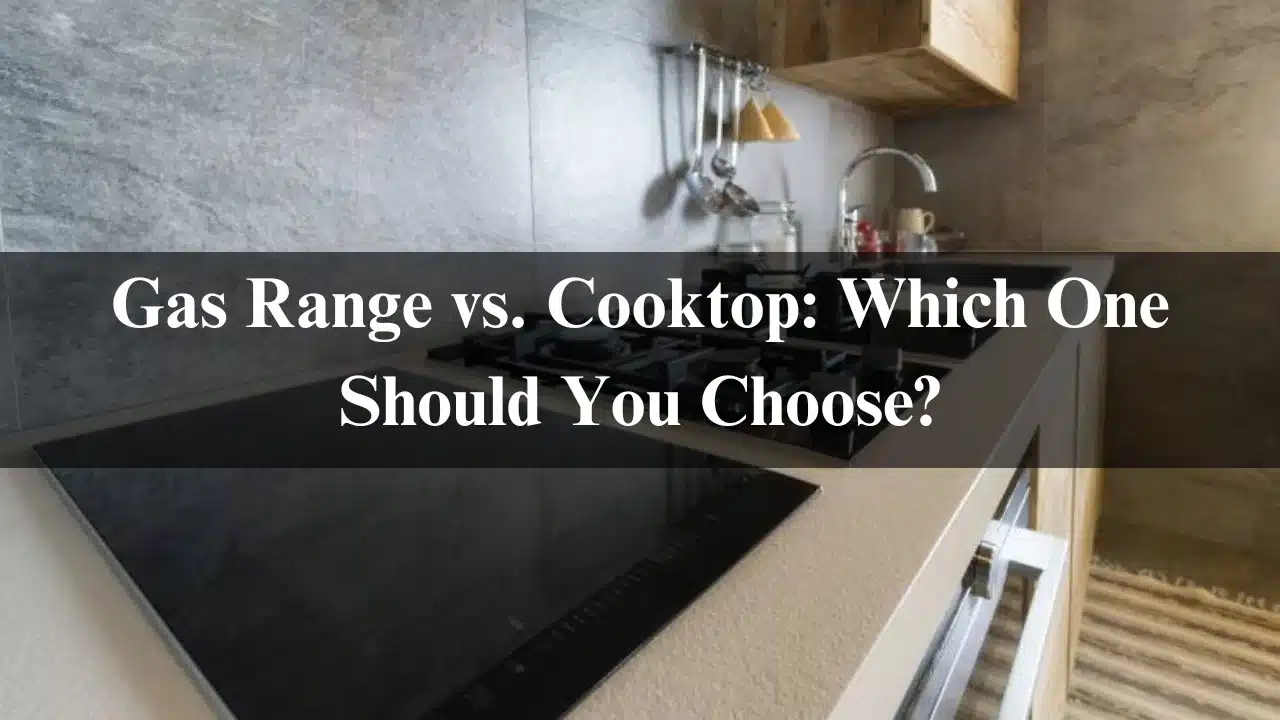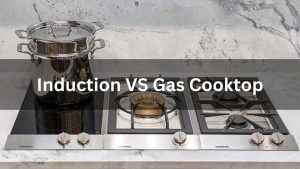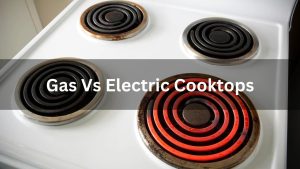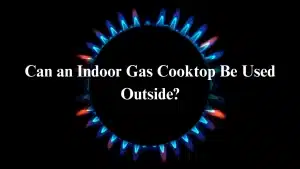Are you ready to elevate your cooking game but caught in the crossfire of choosing between a gas range and a cooktop? Whether you’re an aspiring chef or just someone who enjoys whipping up weekend brunches, this decision can feel like navigating a culinary minefield! Each option boasts its own benefits and features that could change how you cook forever.
In this blog post, we’ll dive deep into the sizzling debate—uncovering the pros and cons of gas ranges and cooktops—to help you determine which one will ignite your passion for cooking. So put on your apron, grab your spatula, and explore which kitchen powerhouse is right for you!
Table of Contents
What Is a Gas Range?
A gas range is an all-in-one cooking appliance that combines a stovetop and an oven. Fueled by natural gas or propane, it offers a traditional cooking experience, where the burners provide direct heat for quick cooking adjustments. Gas ranges typically have 4 to 6 burners, each with adjustable heat for precise temperature control, making them perfect for searing meats or sautéing vegetables.
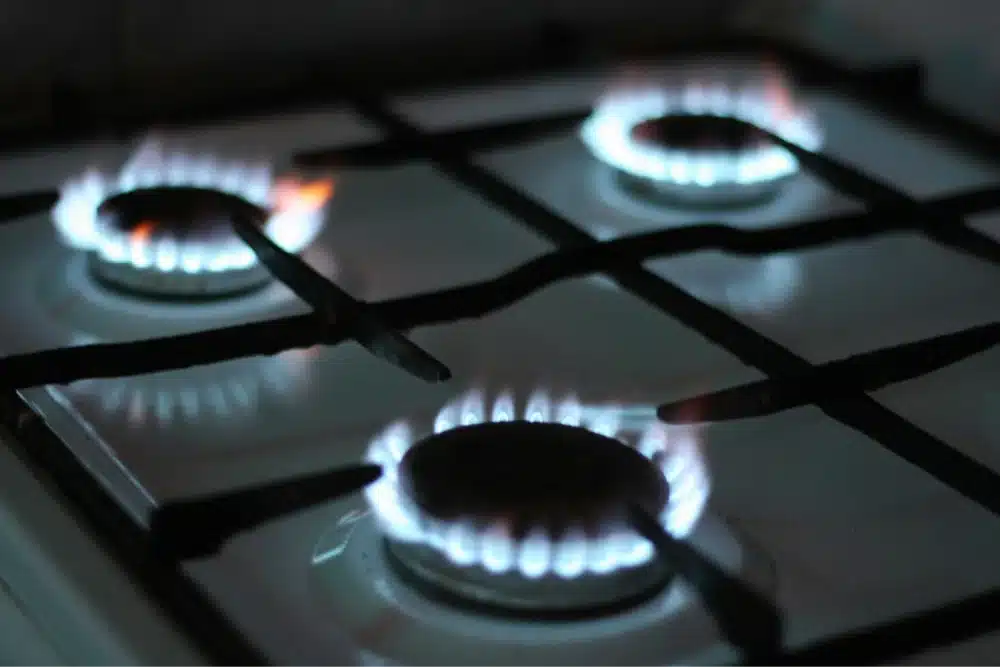
Why choose a gas range? For many, the instant and responsive heat allows fast transitions between high heat and low simmering, ensuring you don’t overcook or undercook your meal. In addition, gas ovens are renowned for their even heat distribution, making them excellent for baking or roasting.
Advantages of a Gas Range:
- Instant Heat: Immediate heat for faster cooking and temperature adjustments.
- Versatile Cooking: The combination of burners and an oven means you can boil, fry, bake, and roast all in one place.
- Energy-Efficient: Generally cheaper to operate over time, as gas is more cost-effective than electricity.
- Even Oven Heating: Gas ovens provide consistent temperatures, ensuring your dishes come out perfectly cooked.
Disadvantages of a Gas Range:
- Higher Initial Cost: Installation may require a gas line connection, which increases upfront expenses.
- Safety Concerns: Open flames pose fire hazards if not monitored properly, and gas leaks are potentially risky.
- Requires Proper Ventilation: Carbon monoxide can be emitted during use, so a good ventilation system is necessary to avoid health risks.
What Is a Cooktop?
A cooktop is a standalone cooking appliance that doesn’t include an oven. Typically installed on a countertop or kitchen island, cooktops come in various types, such as gas, electric, and induction. This article will focus on gas cooktops, which function similarly to a gas range but without an integrated oven.
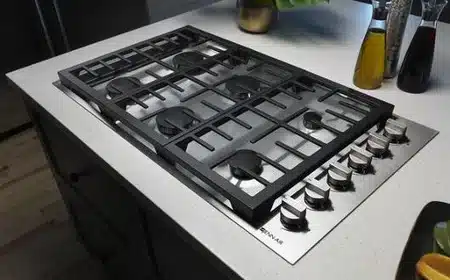
One of the main advantages of choosing a cooktop is the flexibility in kitchen design. You can place it almost anywhere on your countertop, and it’s perfect for those who already have a wall oven installed or prefer to have their oven separate.
Advantages of a Cooktop:
- Space-Saving: Cooktops take up less space than full gas ranges, leaving more room for cabinetry or countertop workspace.
- Customizable Layout: Since it doesn’t include an oven, you have more flexibility in kitchen design. You can install it on an island or anywhere that suits your cooking style.
- Easier to Clean: Cooktops, particularly smooth-surface models, are easier to clean because they do not have drip pans or grates.
Disadvantages of a Cooktop:
- Limited Cooking Capacity: Without an oven, you’ll need a separate appliance for baking or roasting, which could take up additional space in your kitchen.
- Higher Installation Costs: If you don’t already have an oven, purchasing and installing one separately alongside the cooktop increases overall costs.
- Less Versatile: Compared to a range, a cooktop alone limits your ability to prepare certain dishes simultaneously.
Gas Range vs. Gas Cooktop: A Detailed Comparison
Size and Space
A gas range typically takes up more space since it includes both the stovetop and oven in one unit. If you have limited kitchen space, there might be better options. Conversely, a cooktop is more compact and can be installed in any available countertop or island, making it ideal for smaller kitchens or custom layouts.
Installation and Cost
Gas ranges are more expensive upfront because they require both gas lines for the burners and electric connections for the oven. The installation is also more complex. Meanwhile, cooktops may offer lower costs for those with a built-in oven or those who prefer purchasing them separately.
Cooking Versatility
A gas range provides more versatility for cooking. You can boil pasta while roasting chicken in the oven simultaneously, which is particularly useful when preparing large meals or hosting gatherings. On the other hand, a gas cooktop focuses purely on stovetop cooking, so you’ll need a separate oven for baking or roasting.
Ease of Cleaning
Cleaning a gas range can be a bit tricky because its burners, grates, and oven collect spills and splatters. Cooktops, especially those with smooth surfaces, are generally easier to wipe clean, as there are fewer components to scrub.
Temperature Control
Both gas ranges and cooktops offer precise control over cooking temperatures, but gas cooktops tend to be more specialized for stovetop tasks like simmering sauces or boiling water. However, gas ranges provide the bonus of an oven with temperature precision, which makes baking and roasting more convenient.
Which One Is Right for You?
Choosing between a gas range and a cooktop ultimately depends on your kitchen space, cooking needs, and personal preferences. If you frequently bake or roast, a gas range’s all-in-one functionality could be the best fit. It provides versatile cooking options and simplifies the need for separate appliances.
However, if your kitchen space is limited or you already have a wall oven, a gas cooktop offers flexibility in design and installation. Cooktops also cater to those who prioritize easy cleanup and stovetop cooking.
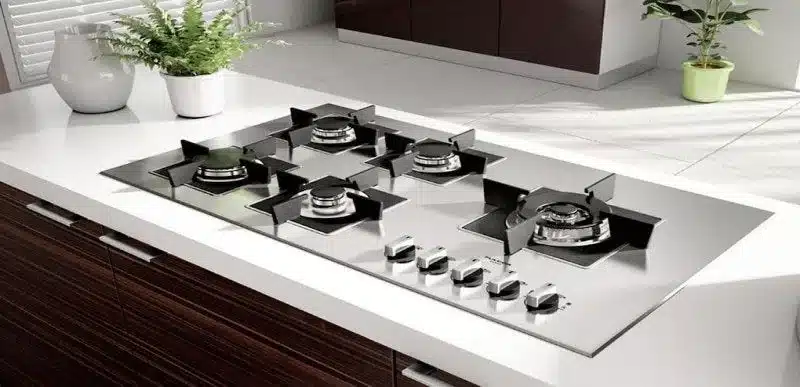
Key factors to consider:
- Cooking habits: Do you bake and roast often, or do you do most of your cooking on the stovetop?
- Kitchen layout: Do you have enough room for a range, or would a compact cooktop better suit your space?
- Budget: Are you prepared for the initial cost and potential installation requirements of a gas range, or would you prefer the more customizable setup of a cooktop?
Conclusion: Gas Range vs. Cooktop – Which One Is Better?
Both gas ranges and cooktops bring unique benefits to your kitchen. The decision hinges on how you use your kitchen and what cooking style works best for you. If you value versatility and the ability to cook large meals, a gas range might be the better choice. On the other hand, if flexibility in design and easy cleaning are more important, a cooktop is likely the superior option.
Ready to make your decision? Either way, both appliances will bring the power of gas cooking into your kitchen—providing efficiency, precision, and the culinary experience you crave.
Conclusion
In summary, choosing between a gas range and a gas cooktop ultimately depends on your cooking style and kitchen needs. A gas range offers the convenience of an all-in-one appliance, perfect for those who frequently bake and roast. In contrast, a gas cooktop provides flexibility and space-saving benefits, making it an excellent option for smaller kitchens or those with separate wall ovens. Consider your cooking habits, available space, and budget to determine which appliance will best ignite your culinary creativity. Whichever you choose, both options promise to enhance your cooking experience with the precision and efficiency of gas cooking. Happy cooking!
Related Articles:
Why Do Most Chefs Prefer Gas Cooktops? Latest Update 2024
Does A Gas Stove Use Electricity For The Oven? In 2024
Gas Cooktop Safety Tips And Precautions Complete Info 2024
FAQs:
1. Are gas ranges safer than cooktops?
Both appliances are generally safe when used correctly, though gas ranges have open flames that may pose fire risks if not monitored. Always ensure proper ventilation and check for gas leaks.
2. Do gas cooktops require special cookware?
No, gas cooktops work well with standard cookware, unlike induction cooktops, which require magnetic pots and pans.
3. Is a cooktop more expensive than a gas range?
Cooktops can be more affordable if you already have a separate oven. However, if you need to buy a cooktop and an oven, the total cost may exceed that of a gas range.
4. What is more energy-efficient: a gas range or a cooktop?
Both are energy-efficient compared to electric models, but overall savings depend on your usage patterns and local gas rates.

